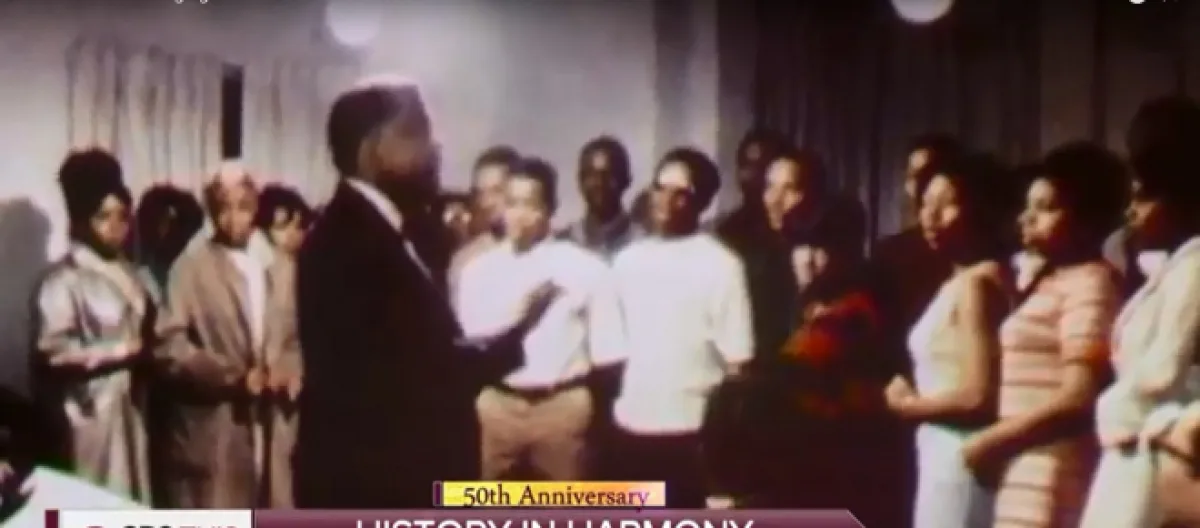While throngs of today's civil rights leaders gather in Memphis to honor the life of Martin Luther King Jr. on the 50th anniversary of his assassination on April 4, 1968, the number of people who lived, worked and shared encounters with the man himself is dwindling. The cause of people peaceably gathering to demand political and social action is as real and relevant as ever, as witnessed by the March for Our Lives on March 24.
One of the most remarkable voices to take the stage belonged to Martin Luther King's granddaughter, Yolanda, 9, who certainly inherited the family legacy for oratory and the passion to commit to a greater purpose. Her take on civil rights today embodies truth and continued need for action. “We're not where we are supposed to be,” said the young activist succinctly.
Music was both a catalyst and a great source of comfort to MLK and to his entire mission. Mavis Staples, who -- along with her sisters and “Pops” -- inspired Dr. King and millions of all colors along the “Freedom Highway,” sang quite another song to soothe the leader through weary evenings.
“Why Am I Treated So Bad” was the song often requested from the rich-throated Mavis, and another group of singers moved death, and thanks to a recording, the moment is preserved for all of history.
A momentous stopover
The Lorraine Hotel was converted into the National Civil Rights Museum in 1991, but in 1968, the accommodations were given frequent use and support from Dr. Martin Luther King, seeing that they were owned and operated by African-Americans. The Prairie View A&M University a cappella concert choir only stopped at the Lorraine Hotel on March 18 to offer their exhausted bus driver a much-needed respite. Little did they know that they would offer spiritual refreshing to the greatest American civil rights figure of history.
Choir members Judy Lusk, soprano, Richard Perkins, bass, Tom Jones, bass, Ernestine Ware-Odom, soprano, Bob Duckins, bass, and Joe Berry, baritone were all escorted back this week to the Lorraine Hotel, and each one described their impressions and lasting memories of being summoned at midnight to sing for MLK. The honored contingent detailed its members’ personal memories on “CBS This Morning” on April 4. They all realize now that they are part of changing history through their interlude of spiritual comfort.
None of the choir members had any knowledge that Martin Luther King Jr. was staying at their hotel, but choir director, Dr. H Edison Anderson, was aware of the esteemed guest being on another floor, and he beseeched Dr.
King’s staff to allow his choir to sing for the leader. Dr. King was in Memphis to support the strike by sanitation workers, whose placards proclaiming “I AM A MAN” became known nationwide. King had spent all day speaking and organizing groups in communities for the cause. Small group planning meetings and a speech lasted well into the night. Minutes before midnight, the director’s call came to assemble and sing in a conference room. They were told “don't even dress,” only to have their voices in full flourish.
Ready, set, sing
“I was trying to find my pitch,” declared Perkins. Far from sounding impromptu, the performance of Randall Thompson's “Alleluia” fit right into the ensemble’s range, from anthems to classical masterpieces and requested spirituals.
In a long shot of Dr. King, wells of emotion can be seen in the fatigued preacher’s eyes. There is a certain impression that for these few moments, he was transported to a higher place.
Joe Berry expresses the reverence of all the singers as being “in awe of being in the room with Dr. King,” It was a sense that brought the “gleam in the eye” to singers who now could look their hero in the eye.
Earlier in the day, Judy Lusk recalled thinking that “Memphis is a filthy city,” after seeing the stacked and stuffed refuse containers spread over a city, and unaware of the strike. Now, the singer has to think of a divine intervention of fate when reflecting on Memphis. In a tragic irony, the same cameraman who captured the a cappella choir’s performance would be the one that captured MLK’s tragic assassination just over two weeks later.
The singers are well aware of being a part of history and “a movement” that continues to need young voices in every sense.
The dream-come-true for the Texas singers who were standing in front of the man who still inspires generations with his dreams for equality, justice, and living in peace is the kind to inspire song and social change forever.

